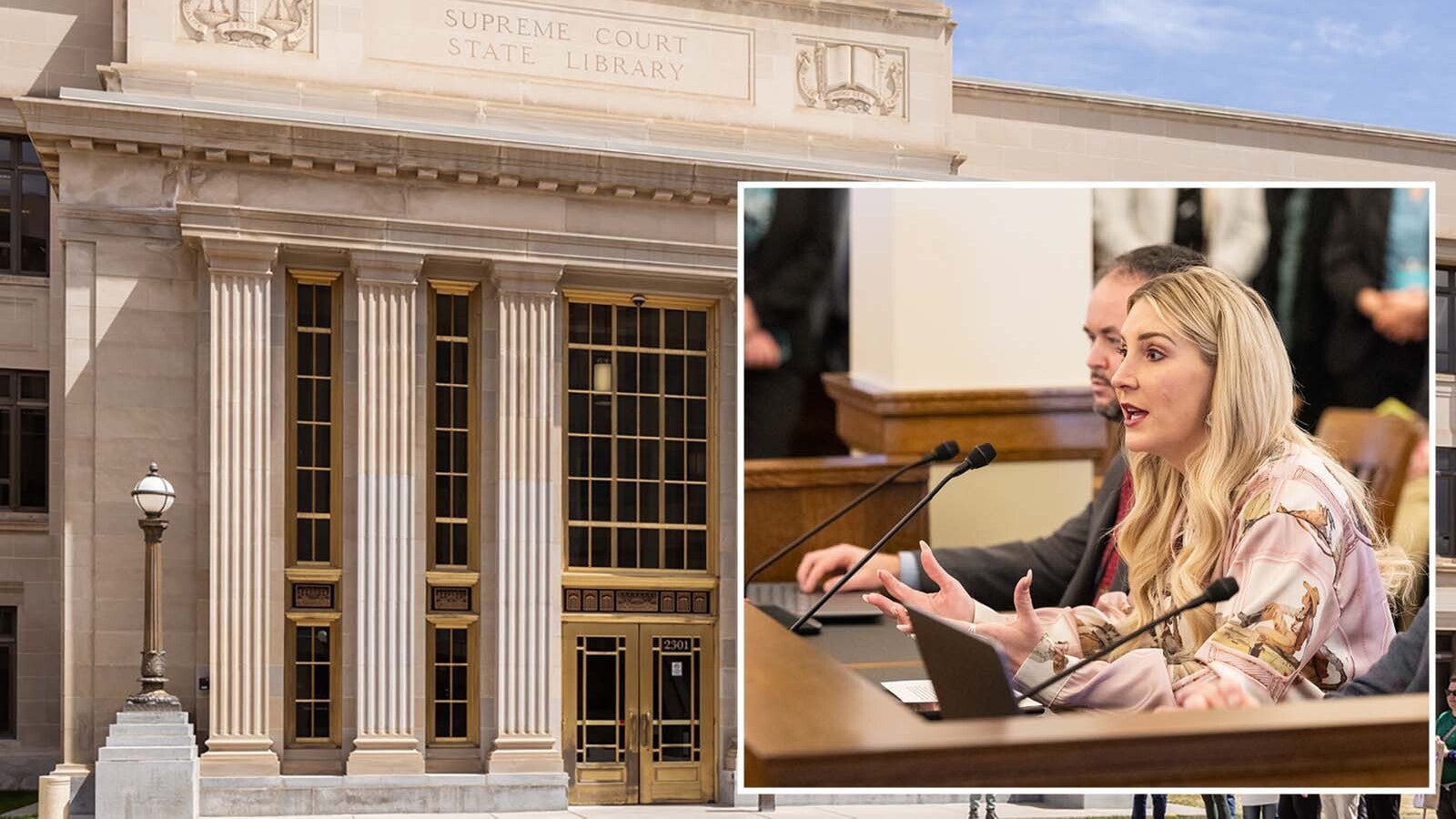The Wyoming Legislature is considering cracking down on minors receiving treatment for tobacco use without their parents’ knowledge.
The Joint Health, Labor and Social Services Committee has passed a draft bill repealing a provision that allowed minors ages 12 and older to be treated as adults when it comes to getting treatment to quit smoking and vaping.
On Friday, the committee voted 11-1 to repeal the law, moving the legislation on to the 2024 session as a committee-sponsored bill.
What The Law Says
Current state laws prevent parents from accessing all the health records of their 12- to 17-year-old children.
The state has multiple laws that, combined with a federal regulation, bar parents from seeing some of their children’s treatment records. Specifically, children can seek tobacco cessation treatment without parental consent and are to be treated like adults in that scenario.
State Rep. Jeanette Ward, R-Casper, proposed the legislation.
“My philosophy is that there are no medical records of a 12-year-old that should be hidden from parents,” she said.
Under federal regulation, the presence of the state law means parents can’t see the treatment records for their children, but they can make a special request online or in person to see the child health care records that they are allowed to review in person.
Rep. Tamara Trujillo, R-Cheyenne, said this is not an effective solution as many people in Wyoming live in remote rural areas and can’t quickly get to their local hospitals. Rep. Sarah Penn, R-Riverton, a nurse practitioner, added that there is an ongoing trend of records becoming digitized within the health care industry.
“People are simply encouraged to do everything online these days so there may be situations where a parent may attempt to do such things and may be still referred to online, which would be restricted,” she said.
It’s About Parental Control
Controversy erupted in June when Banner Health sent a note to parents of 12-year-olds, informing them they could no longer access their children’s health records online because the law keeps some of those records confidential from parents.
Ward clarified that she isn’t against the tobacco cessation program on face value and simply wants minors to be required to receive parental consent to participate in them.
Rep. Mike Yin, D-Jackson, argued against the legislation, saying it could deter minors from seeking treatment if they have to inform parents about their tobacco use.
“That would be a negative public health benefit,” he said.
In recent years, vaping has become a serious problem among youth, chipping away at gains made through the reduction of cigarette smoking in the last few decades.
In 2018, the city of Gillette passed an ordinance charging minors caught using tobacco criminally, punishable with a maximum $100 fine and minimum of 20 hours of community service, according to the Gillette News Record.
Eric Boley, president of the Wyoming Hospital Association, said his group doesn’t oppose the legislation, but warned that even if it’s enacted into law there could still be situations where access is limited online until databases are updated.
There are also a number of other treatments a minor can receive in Wyoming without parental consent ,such as when a child is legally emancipated from his or her parents. Wyoming law allows children to petition courts for special permission to get an abortion without a parent’s consent and lets children consent to care for sexually transmitted diseases.
Vaccine Repeal
Within this bill, Ward also suggested repealing a law that allows a state health officer during a public health emergency to vaccinate or provide medical treatment to a child without consent if their parent or legal guardian cannot be located and consulted, and the vaccination is needed to ensure the health of the child or the public at large. This amendment was added to the bill.
Some members of the committee like Rep. Dan Zwonitzer, R-Cheyenne, who co-chairs the committee, expressed hesitation that these topics should be within the same bill. Zwonitzer presented the hypothetical of a 17-year-old high school golfer who is required by their school to receive a vaccine but the parents won’t allow it.
Certain states have been addressing the issue of a minor’s right to access certain services this year.
Earlier this year in Texas, a federal court ruled that children younger than 18 are legally required to seek approval from their parents or guardian to obtain birth control from federally funded clinics. Texas also passed state legislation this year requiring minors to receive parental consent before using social media.
Penn explained that she sees a link between the two repeals under the larger topic of parental rights and the choices of minors.
She and Ward argued they don’t believe any scenario warrants this type of vaccination, and most of the committee agreed, adding the vaccine repeal to the bill.
“I don’t think it’s right that a minor child can be vaccinated without their parent’s knowledge or consent, particularly during a public health emergency such as we saw recently,” Ward said.
Yin also opposed this part of the legislation and brought up the fact that involuntary vaccinations were never used in Wyoming during the COVID-19 pandemic. He and Boley urged hesitation on removing vaccine mandates in light of the pandemic.
“For example, if it’s an Ebola outbreak and something crazy like that and would need to actually, truly vaccinate everyone, otherwise a lot of other people would die very quickly,” Yin said.
Leo Wolfson can be reached at leo@cowboystatedaily.com.





